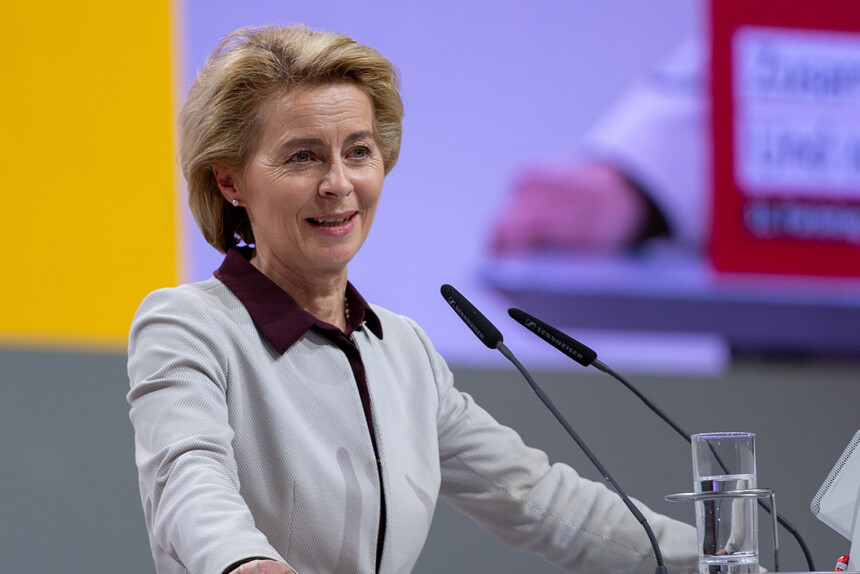Western elites recently heaped scorn on the Hungarian government for passing child-protection legislation. The Land of the Magyars outlawed the portrayal of homosexuality and “sex reassignment” surgeries in school education material and television programs aimed at minors. Hungarians view the law as protecting children from radical ideologies about sex and gender, while European Commission President Ursula von der Leyen denounced the bill as a “shame” and discriminatory.
Most European commentators focused on how the Hungarian child-protection legislation may or may not violate European law. The greater issue is how the conflict over a child-protection law exemplifies a shift in the West’s moral order.
Until recently, most Western countries would have supported laws similar to Hungary’s child-protection laws. They represent, in fact, the moral consensus of a people—one that was until just a few years ago shared by the European elites who now shame them as Hungarian “anti-LGBT” laws.
Elsewhere in Europe, laws have been trending the other direction. The Netherlands legalized homosexual marriage in 2001. France followed in 2013, the United States in 2015, and Germany in 2017. These laws were passed in the name of tolerance but instead encouraged moral fanaticism, leading to intolerance of other moral designs that had constituted the ethical fabric of much of the liberal West for the past centuries. Seemingly overnight, this type of legislation became the true measure of democracy everywhere and at all times. Apologies were consequently made for past crimes against human rights and reparations were discussed and, in some cases, passed.
The categories that Von der Leyen used to level her charges against Hungary—discrimination, human dignity, equality, and human rights—are indeed part of the European treaties, but they were not applied to sexual orientation until recently.
In both Europe and America, the rejection of this shift in moral categories has been most often attributed to the rise of populism or authoritarianism and has been presented as a fundamental threat to Western democracy. Anne Applebaum in The Twilight of Democracy, Yascha Mounk in The People vs. Democracy, or Steven Levitsky and Daniel Ziblatt in How Democracies Die—all suggested that governments like Hungary’s or the United States under Trump betrayed authoritarianism in their moral positions.
But the defenders of liberal democracy are guilty of the very thing of which they so readily accuse others.
Ironically, in reaction to these efforts by antagonistic elites, some countries might consolidate political power in a way that would have authoritarian characteristics. In other words, the soft despotism of liberalism amid the struggle over fundamentally divergent moral-legal orders may ultimately call forth democracy’s demonic “other”— the tyranny of the majority scorned. Due to different constitutional structures, this outcome is more likely in Europe than in the United States.
In the United States, the conflict over the moral shift plays out simultaneously at all levels of society. The full spectrum of American elites, religions, media, businesses, and political parties are engaged in this battle. While Alexis de Tocqueville suggested that these moral shifts can take the form of a tyranny of the majority, he thought that in America this could be avoided through associations. Whether that is still the case is open to debate.
In Europe, however, moral conflicts inevitably become legal battles between parallel moral-legal orders in international courts. Thus, they take longer to resolve and become, above all, questions about power, increasing the possibility of violence and undermining the European Union’s legitimacy.
The politics of moral change, while seemingly similar in the United States and Europe, are all too easily subsumed beneath headlines that warn about the rise of populism or authoritarianism. Observers see only yellow journalism that is less concerned with informing them than scaring them into embracing a defense of the top-down authoritarian “democracy” practiced by Von der Leyen. But that hysteria overlooks both the nature of competing worldviews and the constitutional systems in which they occur.
While European politics will tend to solve conflicts legalistically without forming a largely agreeable moral consensus, American politics tend to solve conflicts by overwhelming public opinion. The latter can feel more oppressive than the European solution, but it allowed, at least in the past, for the formation of resistance on the basis of the new consensus, resulting in long-term political stability.
While neither one is ideal, the American solution to deal with tectonic moral shifts tends to produce less violence. It is, however, the European Union, which should be afraid of what the future may hold, and Von der Leyen might learn to regret her self-righteous attack against Hungary.
Image Credit:
above: Ursula von der Leyen at the 31st party conference of the CDU Deutschlands in Hamburg on December 7, 2018. (Photo by Olaf Kosinsky /Wikimedia Commons CC-BY-SA-de 3.0 )

Leave a Reply